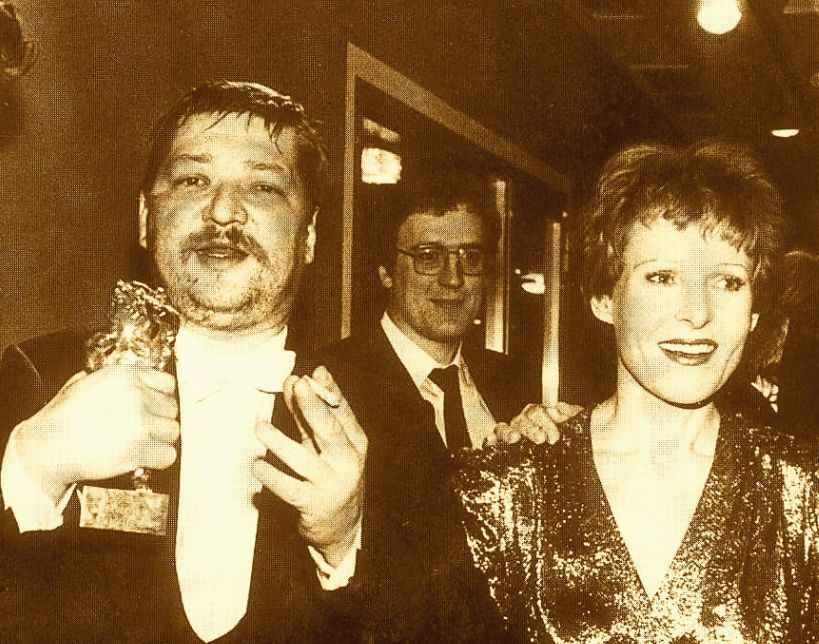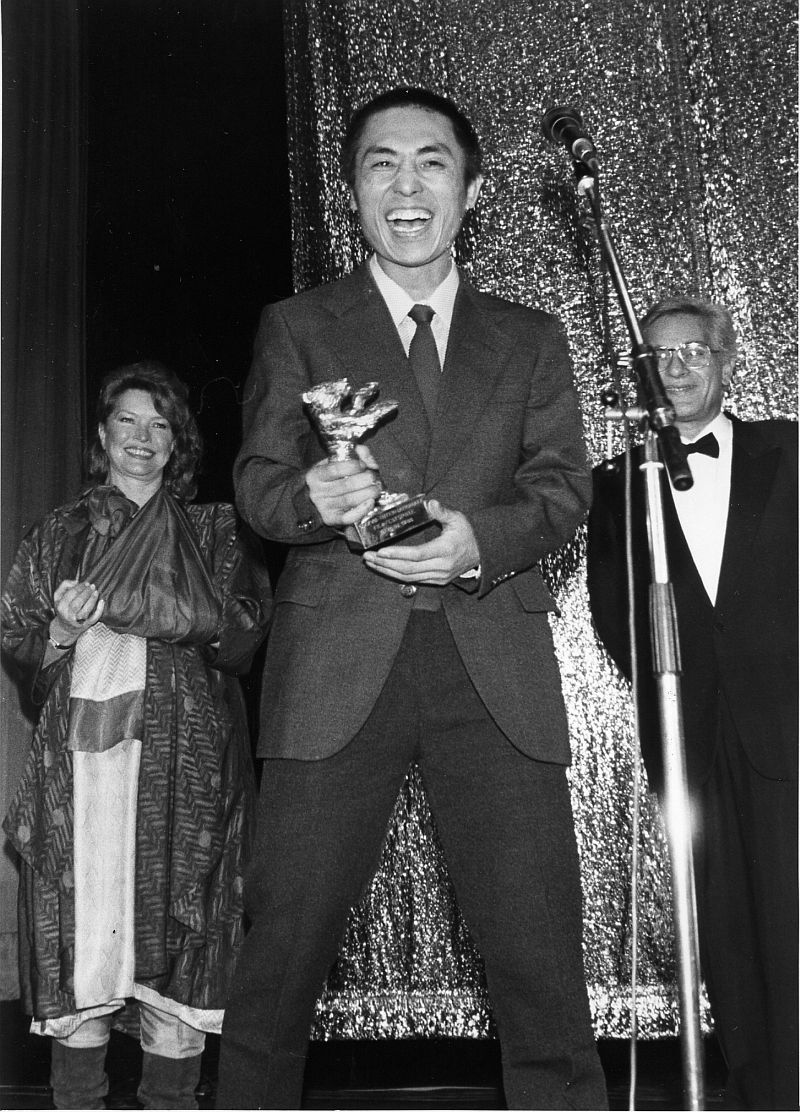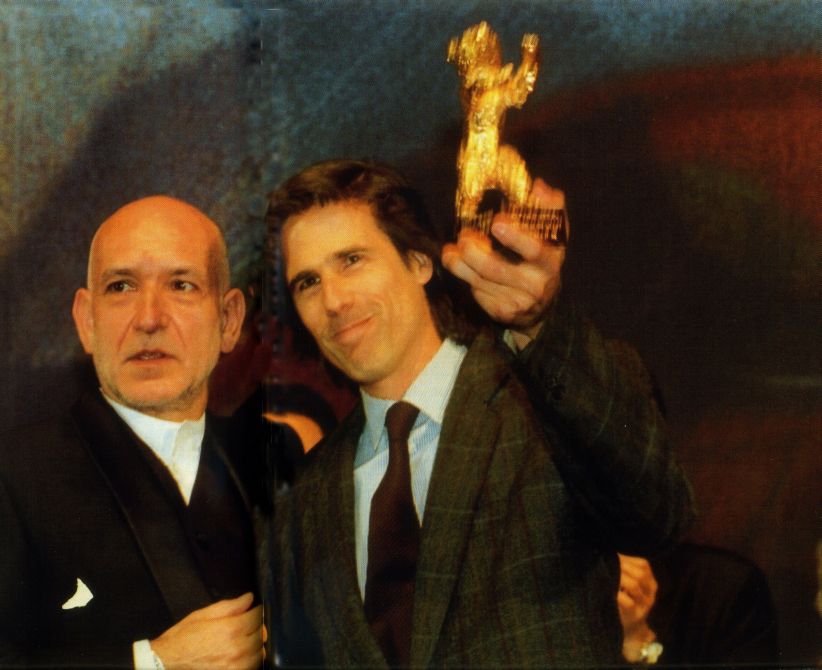



Programming innovations
Since many years Moritz and erika de Hadeln have been at the avant-guard of innovations, inventing new program structures and exploring new film territories. Among others:
! First ever "FIPRESCI Film Week" (1973, Locarno)
Concept of the first ever "FIPRESCI Week" as an independent choice of films made by the members of International Film Critics Associations. Since, "FIPRESCI Weeks" are being organized in many Festivals.
! First ever "Ecumenical Jury" (1973, Locarno)
Convincing both church authorities to create together an "Ecumenical Jury" by melting the previous Catholic and Protestant juries together. Nine months later, this initiative was adopted in Cannes and thereafter by many other festivals.
! First selection trip to Mainland China (1980, Berlin)
First invitation to visit Beijing for a selection as the country was slowly recovering from the Cultural Revolution and restarting film production. Regular selection trips to Shanghai, Beijing and Xian were to follow in the coming years.
! First Film Market in Berlin (1980, Berlin)
Using the new screening facilities built Budapester Strasse in 1979, creation of the first international film market at the Berlin International Film Festival, with an independent administration led by the Swede Aina Bellis.
! Creation of the "Kinder Workshop" (1981,Berlin)
As part of the Childrens' Festival section, this work shop was intended to add an animation workshop for young participants, based on Ernest Ansorge's sand animation techniques. For lack of funding the experiment was later abandoned.
! Invention of the "Panorama" section (1985, Berlin)
Together with Manfred Salzgeber conceiving the structures and aims of the "Panorama" section to replace the old "Info Show".
! Milestone retrospective of documentaries from the Baltic States (1987, Nyon & Berlin)
Selection in Tallin, Riga and Vilnius. Soviet Goskino in Moscow authorized for the first time the selection of a program on location.
! Creating the "European Film Market" (1988, Berlin)
Planning the organization of the "European Film Market" as answer to the newly established "American Film Market" in LA. Beki Probst, was appointed head of this market.
! First Festival in both sides of the town (1990, Berlin)
Following the opening of the Berlin wall, organization of a festival in both sides of the town with the support of the East German authorities.
! Encouraging the first "Gay Teddy Bear" (1993, Berlin)
Officially supporting the first "Gay Teddy Bear" ceremony, initially an underground event, in a spirit of solidarity for sexual minorities.
! Conceiving the "Venice Screenings" (2002, Venice)
Creation and organization of the "Venice Screenings", recognizing the need for a specialized film market as part of the Venice International Film Festival.
Logistic innovations
As time went by, such things as fax, computers, email, internet, video screening have become part of daily routine. But in early days as they became available, this team was among the first to use them in providing each time a step forward in organization efficiency. Selecting films in unknown territories was also one of their trade marks. Their inventiveness and film curiosity is legendary and has no boundaries. Some examples:
• Conceiving festival equipment (1969, Nyon)
In days when no fax nor photocopy machine existed, and press releases had to be duplicated with a stencil machine, conception of the technical and office equipment required for the new International Documentary Festival premises and offices in Nyon,
• First ever "user friendly entry form" (1970, Nyon)
Layout of the first ever "user friendly entry form" with pre-defined check boxes, establishing a new standard for the registration of films at a film festivals. In 1972 this layout was adopted as a model by FIAPF.
• First festival "job description" document (1980, Berlin)
First exhaustive "job description" document laying the requirements for the employment of personnel needed for the origination of a major film festival. It served later in Venice as a model to reorganize the festival structures.
• First ever use of a computer by a film festival (1980, Berlin)
First ever use of a computer program to manage the festival needs such as addresses, accreditations, guest invitation letters, accreditation badges, hotel vouchers, film lists, daily programs, who's where lists and the film depot administration. The first program was written in "Basic" language and the first computer was a large frame Nixdorf installed on the festival premises in early 1981.
• First public video projection on a large screen (1983, Nyon)
Introduction in a festival program of the first public video projection on a large screen with the help of a Barco projector.
• Creation of a new brand and corporate identity (1999, Berlin)
Creation of a new brand and corporate identity (new logo, new heading, new banners, new stationary) for the Berlin International Film Festival, after extensive interaction with Meta Design GmbH, Berlin.
• Creating a marketing concept for Brazilian cinema (2001, Rio de Janeiro)
Providing detailed advice and training to the "Grupo Novo" in Rio for the international promotion of Brazilian cinema and festival participation.
• Introduction of a credit card size accreditation badge (2003, Venice)
In a move to modernize the antiquated Venice Festival structures introduction of a credit card size pre printed accreditation badge and laying the ground for a festival internal electronic network.
• Planning the renewal of the Venice Film Festival organization (2003, Venice)
Providing a detailed plan for the renewal of the Venice International Film Festival organization and of the Lido infrastructures, a plan unanimously adopted by the Biennale board in late 2003, but then rejected by Berlusconi's Ministry.
• Laying the basics for a new Film Festival in Montreal (2005, Montreal)
Conceiving and writing participation regulations, entry and accreditation forms and invitation model letters for a new International Film Festival in Montreal and selecting and coordinating a team responsible for the program.
• Creating rules for participation for the new “Douro Film Harvest” in Portugal (2009, Porto)
As advisers to the team creating a new festival in the Douro Valley, “de Hadeln & Partners” provided extended advice on several organisation aspects, among other creating the “rules for participation”.
Today & tomorrow
Their background is the unique luggage of knowledge and experience that make “de Hadeln & Partners” one of today's most valuable assets and the best guarantee that the spirit of innovation and undertaking is always at the heart of its approach to any new challenge within a vast array of projects.
The de Hadelns: a story of a innovations

click pictures to enlarge
Page 2 of 2
Page 2 of 2









